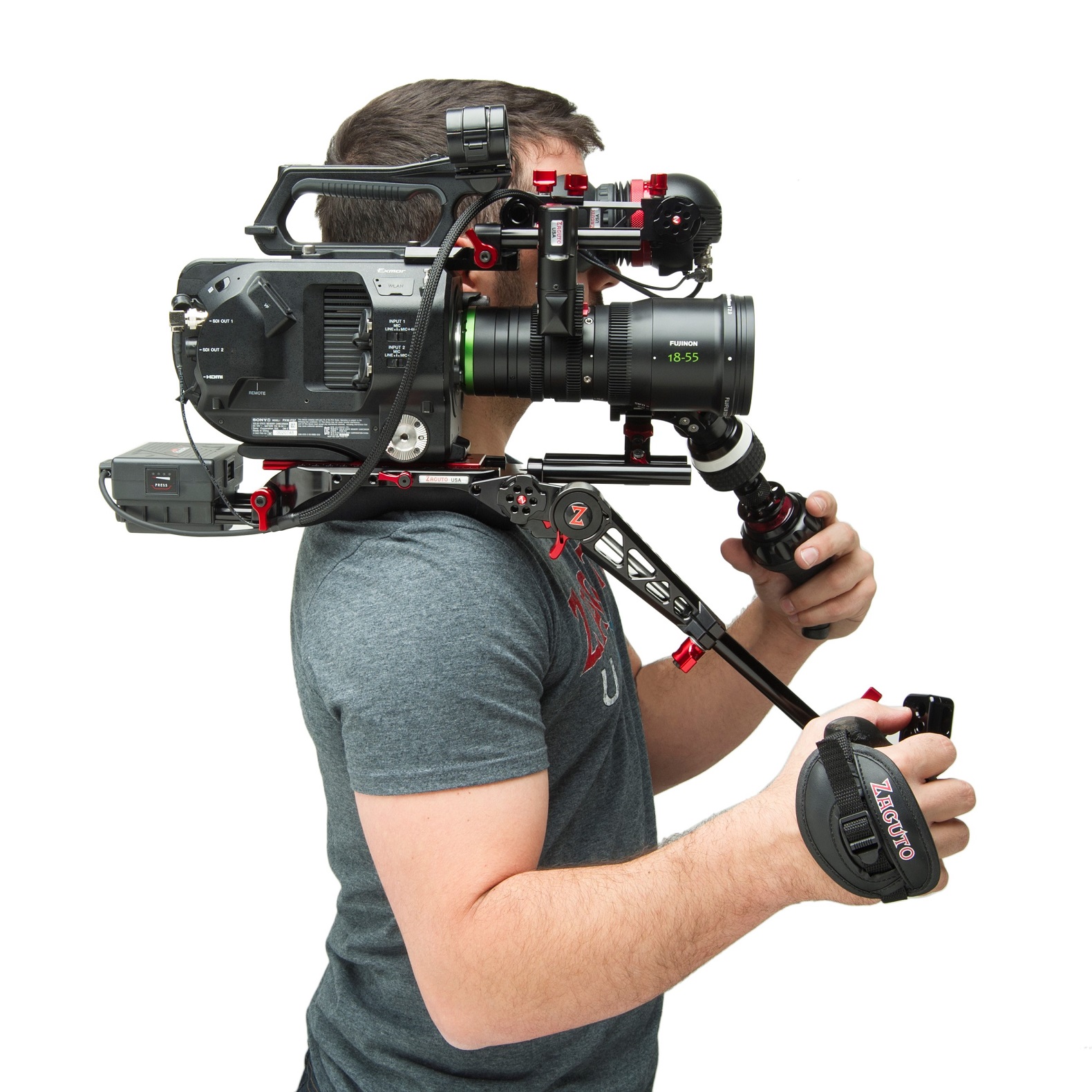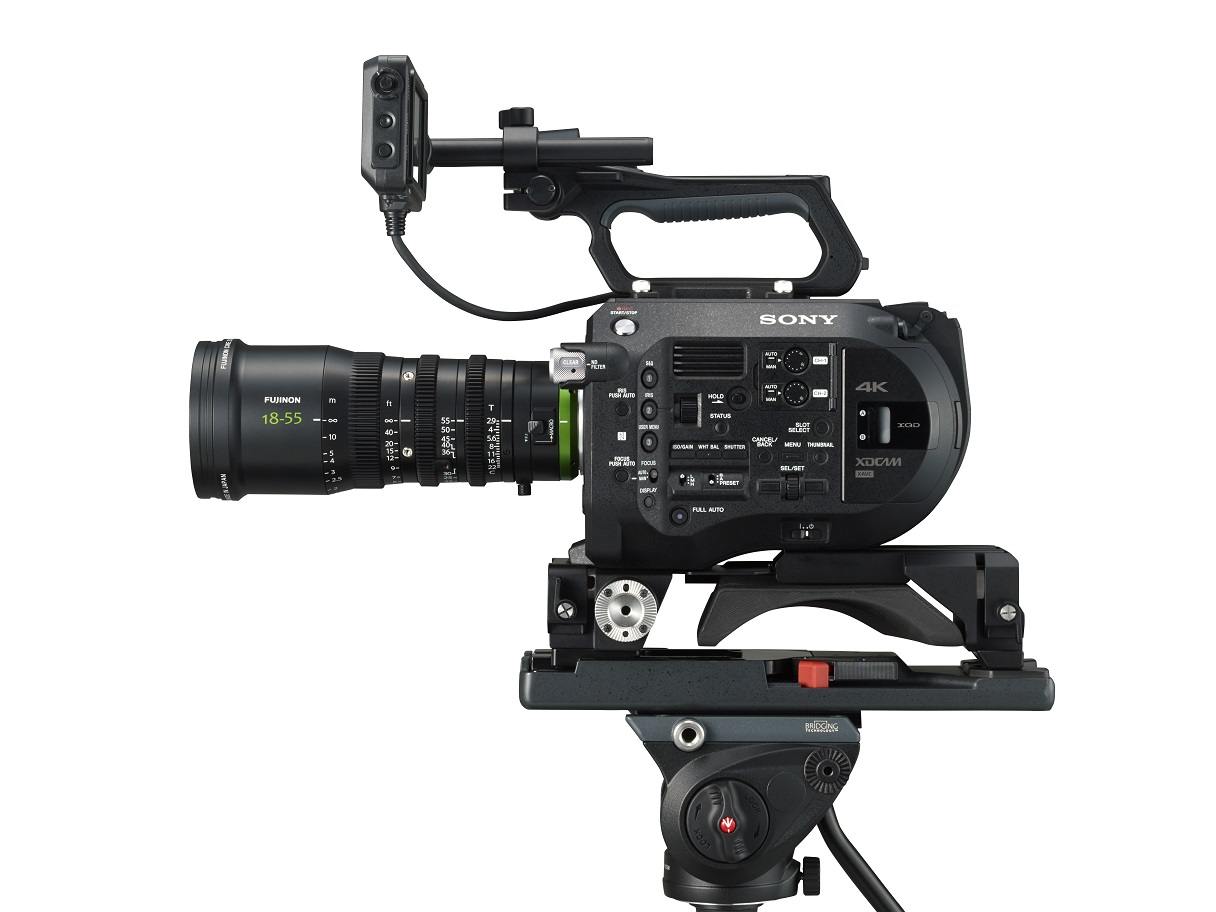FUJIFILM LAUNCHES NEW “MK” SERIES OF CINEMA LENSES

The smarter way to stay on top of broadcasting and cable industry. Sign up below
You are now subscribed
Your newsletter sign-up was successful
Wayne, N.J. – The Optical Devices Division of FUJIFILM has unveiled the MK Series of cinema lenses for E-mount cameras, which boast advanced optical performance, ultra-compact and lightweight design, as well as superb cost performance. The first in this series to be introduced, the FUJINON MK18-55mm T2.9, is a standard zoom with an 18-55mm focal length. It will be available in early March for $3,799. The entire “MK” series is designed with the ‘emerging’ cinematographer in mind, whether shooting a live event, online programming, documentary, corporate video, wedding, independent or short film production.
MK18-55mm
The next in the series, the FUJINON MK50-135mm T2.9*1, will be available this summer. With a combined focal length range of 18mm-135mm in the Super 35mm format, together the first two “MK” lenses cover the most frequently used range utilized by emerging cinematographers. The series offers fast lenses with T2.9 speed across the entire zoom range, enabling a shallow depth-of-field.
“The rapid growth in popularity of content produced by emerging cinematographers has expanded the use of cinema and digital photographic cameras,” said Tom Fletcher, Director of Sales, Optical Devices Division of FUJIFILM. “And the heightened need for programming has, in turn, boosted demand for high-performance cinema lenses, which are ideal to achieve a shallow depth-of-field and a beautiful bokeh. However, since they are typically large, heavy and expensive, those involved in online and other lower cost productions often opt for interchangeable lenses for digital cameras, which have been more affordable and mobile. The problem is that interchangeable lenses for digital cameras are designed primarily for shooting stills, and therefore prone to focus shift and optical axis shift while zooming.”
MK18-55mm

The “MK” lenses are designed to maintain consistent color temperature with all FUJINON cinema lenses, which simplifies color grading*2. The series also inherits the FUJINON cine lenses’ advanced edge-to-edge optical performance and low distortion*3, while boasting compact and lightweight design as well as outstanding cost/performance. The MK18-55 and MK50-135mm weigh in at a light 980 grams/2.16 lbs with front diameters of 85mm and lengths of 206mm. The MK18-55mm’s minimum object distance (MOD) is .85 meters/2.78 feet, while the MK 50-135mm’s MOD is 1.2m/3.93 feet.
“Many independent shooters use DSLR lenses, which aren’t designed for moving images. Still lenses breathe considerably, and they have no adjustable manual iris,” said Fletcher. “Our MK’s have a seamless manual iris, zero breathing, no ramping or zoom shift, and 200-degree focus rotation. They maintain focus completely throughout the zoom range while covering Super 35mm sensors.”
The smarter way to stay on top of broadcasting and cable industry. Sign up below
In addition to their lightweight and compact build, the “MK” lenses are designed from the ground up with the operator in mind. Only one matte box and one filter size are needed between the lenses. Time-saving features include a macro function that allows for a broader range of close-up shooting, and gears for the three rings are positioned in the exact same place, which eliminates the need to re-position accessories when switching lenses.
The lenses each contain a Flange Focal Distance adjustment function*4 to achieve optimal camera and lens matching. The short flange focal distance contributes to the lenses’ compact size and lightweight. Distances are listed in feet and meters.
The iris supports seamless adjustment that is free of clicking. This enables precise exposure adjustment without any sound from clicking between T-stops.
The lenses also feature three rings for manual and independent adjustment of focus, zoom, and iris (aperture), with the gear pitch*5 of 0.8M (module). The focus ring can rotate fully up to 200 degrees to facilitate precise focusing.
The “MK” lenses are compatible with E-mount*6 cameras with the Super 35mm*/ APS-C sensor.
X Mount versions of the MK lenses (with focal lengths of 18-55mm and 50-135mm) used in the FUJIFILM X Series line of digital cameras (with APS-C sensors) are being developed for launch by the end of this year. Information about the X Mount lenses will be provided as soon as more details are confirmed.
See our latest lens roadmap for the X Series on February 22 for more information:
http://www.fujifilm.com/products/digital_cameras/xf_lens/roadmap/index.html
View footage shot by DP Philip Bloom in Gran Canaria using an MK18-55mm T2.9 lens and Sony FS7, FS5 and A7S II cameras:
https://www.youtube.com/watch?v=5Cx66LKDPTc
Watch behind the scenes: FUJINON MK18-55mm T2.9 shot by Bloom:
https://www.youtube.com/watch?v=YX_55s4s6Ro
Key:
*1 T-stop value is an index that indicates brightness of a lens based on its F-stop value and transmission rate. The smaller the value, the greater amount of light the lens transmits.
*2* Processes of correcting colors during movie editing
*3 Distortion refers to a phenomenon in which an image formed through a lens becomes partially contracted or extended at the edges.
*4 The position of lenses’ image-forming plane can be adjusted according to each camera’s flange focal distance (distance from lens mounting reference plane to sensor)
*5 Distance between gear teeth
*6 Lens mount format developed by SONY Corporation
About Fujifilm
FUJIFILM Holdings America Corporation is based in Valhalla, New York, and is the regional headquarters for the Americas. It is comprised of fourteen directly owned subsidiary companies in the U.S. and Canada, and two in Latin America: Brazil and Colombia. The company manufactures, markets and provides service for a broad spectrum of industries including photographic, medical imaging and informatics, pharmaceutical and other life science industries. Industrial segments include data storage, electronic materials, chemical, and graphic arts products and services. For more information, please visit www.fujifilmusa.com.
FUJIFILM Holdings Corporation, Tokyo, Japan brings continuous innovation and leading-edge products to a broad spectrum of industries, including: healthcare, with medical systems, pharmaceuticals and cosmetics; graphic systems; highly functional materials, such as flat panel display materials; optical devices, such as broadcast and cinema lenses; digital imaging; and document products. These are based on a vast portfolio of chemical, mechanical, optical, electronic, software and production technologies. In the year ended March 31, 2016, the company had global revenues of $22.1 billion, at an exchange rate of 112.54 yen to the dollar. Fujifilm is committed to environmental stewardship and good corporate citizenship. For more information, please visit: www.fujifilmholdings.com.
